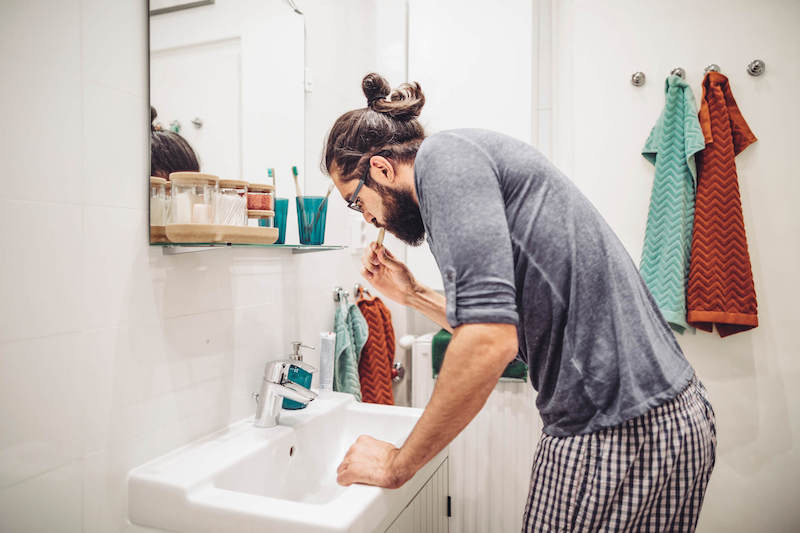If you want to build a healthier daily routine, neuroscience now has the answers to turning good behaviours into concrete habits.
On a good day you might knock out 100 press-ups, eat an apple instead of a chocolate bar, and hydrate with eight glasses of water.
But the hard part is turning that kind of healthy behaviour into a regular routine.
Willpower is like a muscle: it gets fatigued from overuse. And motivation rises and falls with our daily moods.
But what if you could turn healthy daily activities into ingrained habits, so you just complete them automatically?
That’s the question Dr B.J. Fogg, director of the Behaviour Design Lab at Stanford University, has been researching for decades.
Drawing on exciting research in psychology, neuroscience and behaviour change, he has developed a successful habit-building formula which he has shared in his best-selling book Tiny Habits: The Small Changes That Change Everything.
On autopilot
Habits are incredibly powerful neurological weapons. Whereas willpower is vulnerable to fluctuations in our mood, habits are automatic modes of behaviour driven by deeply ingrained neurological patterns.
They empower us to function on autopilot, without conscious effort, in order to free up our brain power for more complex tasks.
But how do you build a habit in the first place? Dr Fogg has cracked the neurological code to show us the way. His method can be summarised by the formula B=MAP.
“‘Behaviour’ can be changed when you have a convergence of ‘Motivation’, ‘Ability’ and a ‘Prompt,’” he explains. “But Behaviour can happen even if Motivation is low, so long as the action is easy (so you have the Ability to do it) and you have a Prompt to remind you.”
Dr Fogg has translated this neurological formula into a simple three-step system…

Habits – like brushing your teeth – are automatic modes of behaviour
1. THINK TINY
Start with a ‘tiny’ habit which is so easy it doesn’t require much motivation, such as doing one yoga stretch per day. “If you don’t make your first behaviour tiny, you will probably fail,” insists Dr Fogg.
If you start out small, your habit will develop naturally because each repetition strengthens the neural pathways to embed the habit further.
“As your ability increases, fear goes away and hope increases because you see yourself succeeding,” he adds.
2. FIND A PROMPT
Anchor your new healthy habit to an existing habit already encoded in your brain, which will ‘prompt’ you to repeat it every day.
Your day is filled with hundreds of existing habits, from making porridge for breakfast to checking Facebook, all of which can serve as helpful ‘cues’.
Dr Fogg started doing one press-up after every trip to the bathroom. He soon upgraded that to two press-ups. Before long, he was doing 100 press-ups each day, triggered simply by his habitual trips to the bathroom.
To achieve this, he suggests writing down ‘recipes’ such as: After I turn on the coffee maker, I will take my vitamins.
3. REWARD YOURSELF
Celebrate the completion of your new habit every day, for example by saying “good job” to yourself. This is the neurological ‘reward’ which will help cement the habit in your brain.
“Over time the positive emotion reinforces that behaviour until it becomes automatic,” explains Dr Fogg.
“It makes you want to do the tiny behaviour again. And when you change one behaviour, you will find it much easier to change other habits, too.”
Words: Mark Bailey









